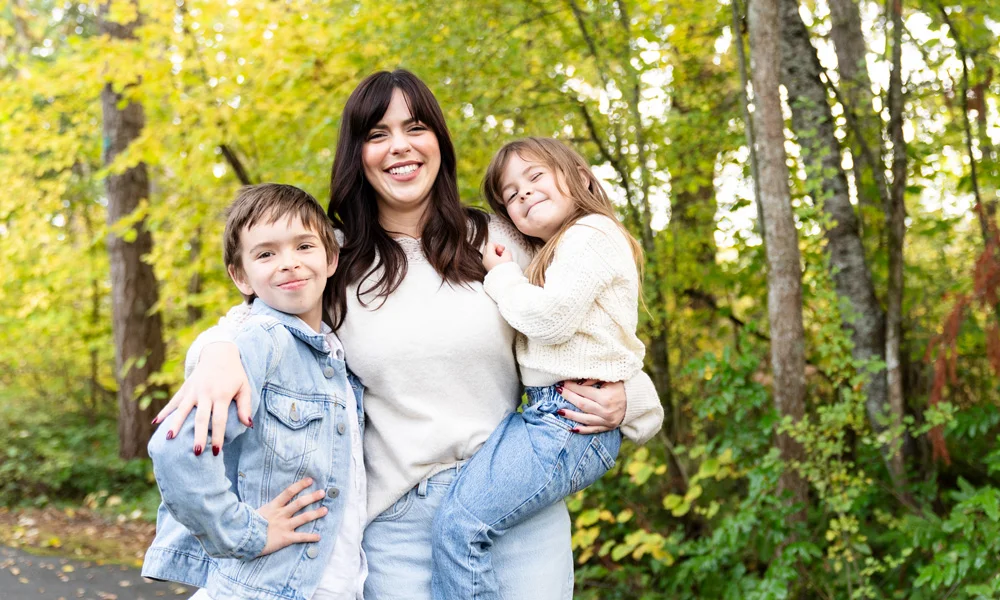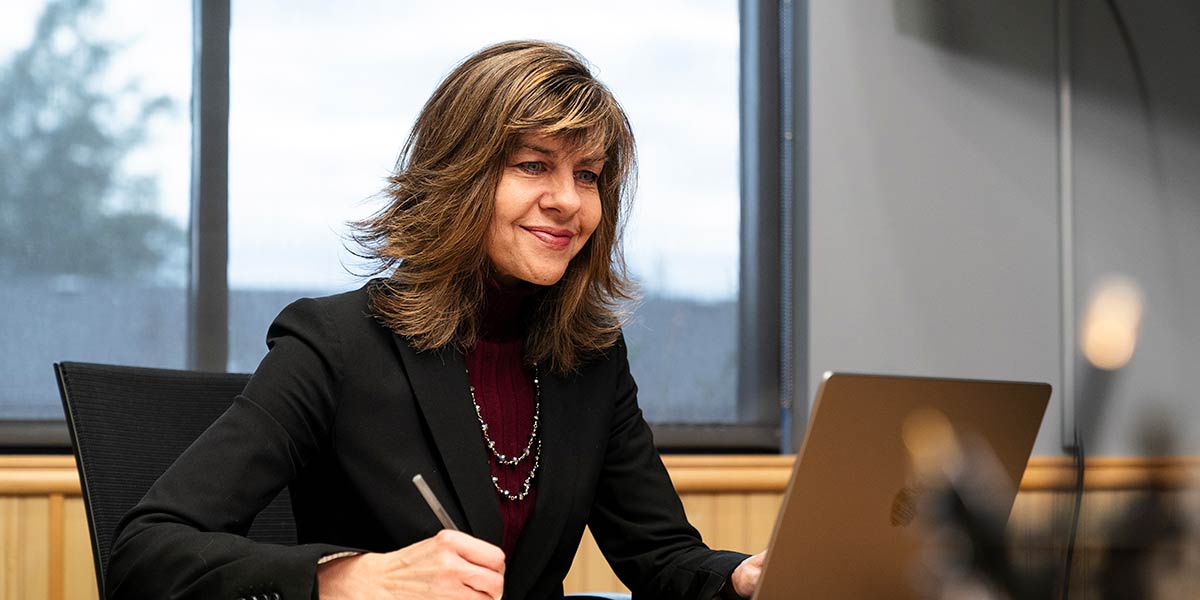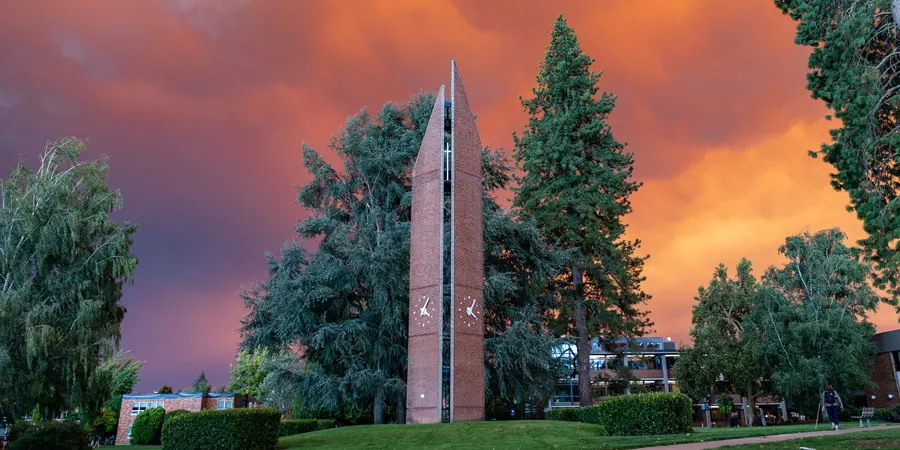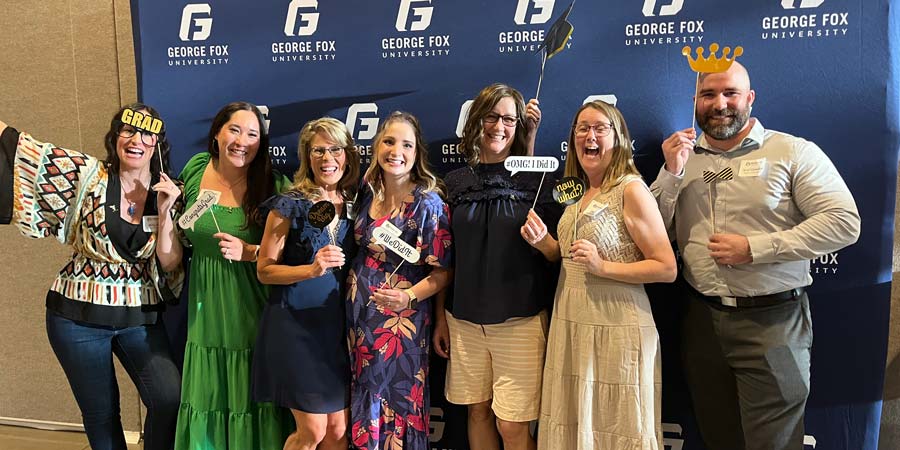
Starting as Strangers, Graduating as a Family
by Brooklyn Chillemi
“Why finish college if you’re going to die?”
Loretta Ramm grappled with this question over and over as a student in George Fox's Accelerated Online Degree program. Years ago, she overcame a breast cancer diagnosis. Now, in the midst of finishing her bachelor’s degree in psychology and mental health studies, a scan revealed the cancer was back and worse than before. Doctors gave her one or two years at the most.
“All I could think about was I’m finally getting my degree, I’m almost done,” she says. “But what was the point?”
Although the program was completely online, she was part of a small cohort that kept close tabs on each other. As her treatment progressed, she lost her hair, which was noticeable in her video responses. Her cohort responded with constant support.
“They prayed for me, and they had me. I think if not for them, I think I would have quit.”
But her cohort encouraged her to push on. “It wasn’t in a sense of, ‘I’ve gotta do it for them,’” she says, “But they did lift me up. They were constantly saying, ‘I’m praying for you, and other people are praying for you, and you’ve got this, and you’re amazing.’ They were my biggest cheerleaders.”
The cohort had originally formed a group chat to work on assignments together and help each other through their courses – but quickly, it became more than that.
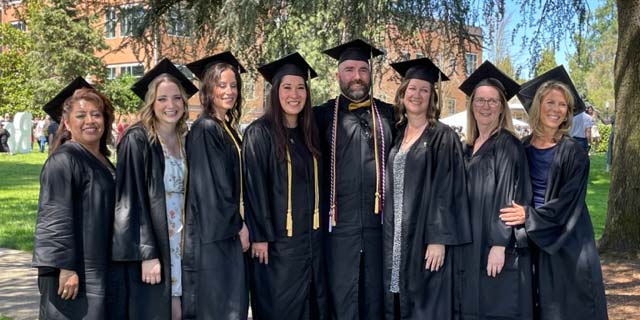
“We talked all day, every day,” Ramm says. “The more we got to know each other, the more everyone shared, even personal, vulnerable stories.”
When Ramm struggled with brain fog due to her treatments, her cohort would remind her of things. Once she decided to purchase a wig, Ramm sent photos of different options to the group and asked them to vote for their favorite.
“Grandbabies were born, pictures were sent, there was a wedding, Soz moved, Molly’s daughter went to softball tournaments, and now I have a wig,” she says.
“It was that sense of belonging that just keeps you going.”
Like others in her cohort, Ramm wanted to finish her degree both to advance her career and to fulfill a personal goal. She’s always worked with children and families, whether as a preschool teacher or in her current role through Head Start, where she comes alongside families to support school readiness in children. Earning a bachelor’s degree would not only bolster her credentials – it would give her more skills to serve her community.
But she didn’t expect the ways her community – through her cohort and professors – would serve her along the way.
When it came time for graduation, Ramm debated whether or not to walk at the commencement ceremony, but the group urged her to attend.
“I felt embarrassed,” she says. “I’m 51 years old. But my cohort was like, ‘Loretta, you are walking.’ And I’m really glad I did. I felt a sense of pride and accomplishment that I didn’t expect.”
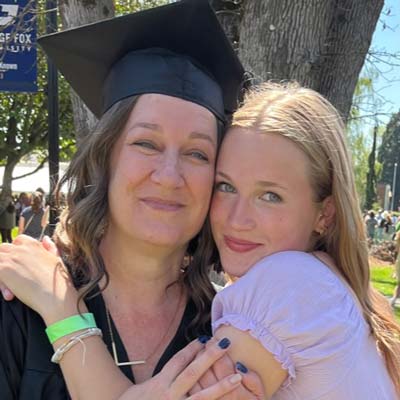
Ramm is one of the only members of her family to finish high school and the only one to pursue college. As a first-generation college graduate, she is paving the way for her daughter, who is now in high school and beginning to explore colleges.
And there's more than a degree to celebrate: It’s been more than a year since her diagnosis, and her last scan was completely clear.
“No one knows how much time they have,” she says.
“I’ve gotta give God the glory, and my amazing people who prayed for me constantly.”

